The Spanish National football team is one of the most reputable national teams in the world. It has always been among the favorites to win the international competitions in which it participated and from the 21st century, more specifically in 2008, it will reach its best and will live up to the expectations that it always generated.
But the triumphs in football are not casual. They are often the product of long periods of maturation, of the strength and passion of the followers who never falter and of the football culture of a nation, of the high competition of the Spanish League, of the football clubs and their excellent work, of the football schools, the professionalism of the coaches and also of the destination. What happened in Spain in football was therefore maturing and this is what we will see next; the tradition and legacy of this centuries-old Spanish team.
The Spanish football team played its first international match in 1920, just one hundred years ago, against the Danish national team. Spain won 1 to 0 with the first goal in history scored by Patricio Arabolaza. Keep in mind that in the 30s the teams were measured against the rest in the competition organized within the framework of the Olympic Games. That is why we highlight the 1920 Olympics where the Spanish team won the Silver Medal. Among the players of those first Olympics, we find players who have been left for history; Jose Maria Belauste, Ramón Eguizábal, Arrate, Félix Sesúmaga who scored a double, Ricardo Zamora and Artola, Sabino Bilbao, Francisco Pagazaurtundua or José Samitier.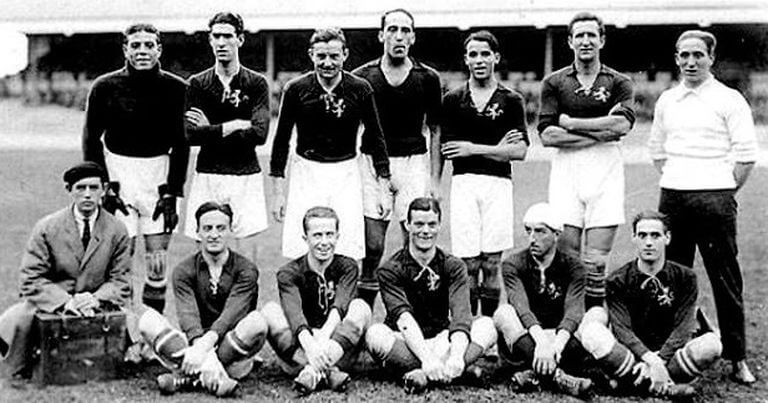 Spain at the 1920 olympic games - silver medal and football pioneers
Spain at the 1920 olympic games - silver medal and football pioneers
There began everything that came later; the glory of the victorious Spanish team in the 2010 World Cup in South Africa and in three European championships; the 1964 Euro Cup, the second European championship organized in the history of the Euro Cups, the one in Austria and Switzerland in 2008 and the one in Poland and Ukraine in 2012.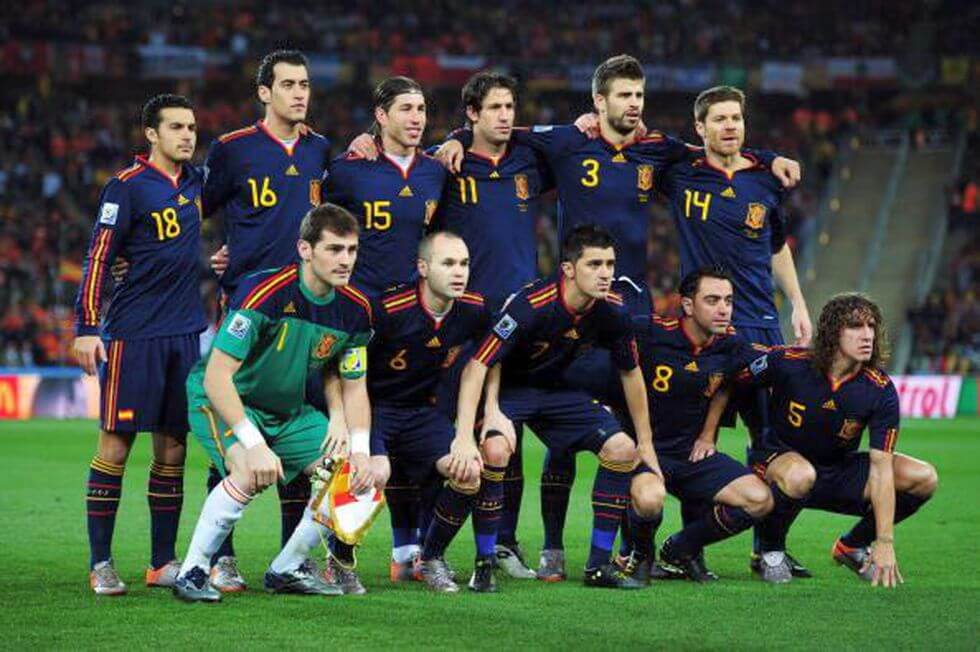 Spain at the 2010 World Cup - world champions
Spain at the 2010 World Cup - world champions
Let's look at the record of the Spanish team and we will realize its height in world football. We will include the victories, their participation in the quarterfinals, semifinals, and finals, which will allow us to have a reliable image of their competitiveness.
SIGNIFICANT RESULTS OF THE SOVIET UNION IN WORLD CUP, EUROCOPAS AND OLYMPIC GAMES:
WORLD CUP:
1934 World Cup in Italy: Quarterfinals
1950 World Cup in Brazil: Fourth place
1986 World Cup in Mexico: Quarterfinals
1994 World Cup in USA: Quarterfinals
2002 World Cup in South Korea and Japan: Quarterfinals
2010 World Cup in South Africa: Champion
EUROPEAN CHAMPIONSHIP:
Euro 1964: Champion
France Euro Cup 1984: Second place
England Euro Cup 1996: Quarter Finals
Belgium and Netherlands Euro Cup 2000: Quarter Finals
Austria and Switzerland Euro Cup 2008: Champion
Poland and Ukraine Eurocup 2012: Champion
OLYMPIC GAMES:
1920 Antwerp Olympics: Silver Medal
1928 Amsterdam Olympics: Quarter Finals
1992 Barcelona Olympics: Gold Medal
From 1948 onwards, the Olympic Games were played between non-professional teams and from 1992 onwards, under-23 teams.
As we see Spain is among the most successful teams worldwide. Keep in mind that only eight teams have won the World Cup and that Spain is also second in titles in the record for victories in the Euro Cup after Germany.
Since the players make the victories we pay tribute to some of our great legends of Spanish football of all time. Some of which could be unknown to us, but which at the time made stadiums tremble with their plays and goals.
That is why we highlight the 1920 Olympics where the Spanish team was the Silver Medal. Among the players of those first Olympics, we find players who have been left for history; Jose Maria Belauste, Ramón Eguizábal, Arrate, Félix Sesúmaga who scored a double, Ricardo Zamora and Artola, Sabino Bilbao, Francisco Pagazaurtundua
Ricardo Zamora was born in Barcelona in 1901 at the beginning of the 20th century. He is the divine soccer goalkeeper in Spain, considered one of the best football goalkeepers in the world in the 1920s and 30s. His career runs from 1916 to 1938. His international success is the Antwerp Olympics where he is considered the best goalkeeper in the competition. Spain takes the Silver Medal in those Olympics. He started at 15 playing for Spanish, he was signed by Barcelona for three seasons and of course, he was the iconic goalkeeper of Real Madrid from 1930 to 1936 where he won two League titles. During the national war, he was presumed dead several times, shot by the Republicans for not openly declaring himself a Republican. He remains hidden but he will end up spending a period in prison, he was released, he hid again and he left Spain on his way to Nice where he played for the OGC Nice, a club where he also started as a coach. The Nationals criticize him for not supporting his cause and the doorman in the newspaper Sport declares that he is not a fascist. Upon returning to Spain after the contest in 1939, he will train Atlético Aviación, the current Atlético de Madrid, where he remains for seven years and wins two Leagues. He will train other Spanish teams and also the Spanish national team in 1952. In the goalie he was safe protecting the team from adversaries with authority and strength, instilling great respect, he is also known for his great reflexes in his interventions.
Telmo Zarra, born in 1921 in Erandio, Basque Country, a great scorer in the history of Spanish football. He was born into a family of ten brothers, the two elder brothers were professional footballers but not with the same success as the younger brother. But these two brothers marked him. He held the record for the highest goalscorer in history on several occasions, even today he continues to hold the record as the Cup's top scorer with 81 annotations, unmatched if we also consider that Atlético de Bilbao won 5 times with his goals. He spent his entire career at Atlético de Bilbao where he still holds the title of top scorer with 335 goals. In 1943 he won the league with the Bilbao team. If we consider that he developed his career in from 1939 to 1957 we can get used to the idea of his potential scorer. During his long career, he took the Marca Pichichi Trophy six times. As the history of this player is the history of his goals, we highlight the historic goal against England in the 1950 World Cup in Brazil, the goal from Maracana that qualified Spain for the final phase of the championship. A player with a born instinct to score, with instinctive ability to move around the field in search of the goal that allowed him to position himself in the right place, as well as a great marker for goals scored due to his height of one meter eighty, something not very common in those years.
Alfredo Di Stefano, born in 1926 in Buenos Aires, the historic player and President of Honor of Real Madrid. He previously played for River Plate since 1945 where he started as a player and stayed for four seasons and another four in Millionaires, whose Argentine culture he hardened as a player. His double love for Argentine and Spanish football allowed him to play for the Argentine team for 6 games and for the Spanish national team in 1956 after he became a Spanish national, where he played 31 games, although circumstances prevented him from competing in a World Cup until 1962. His fame in his time associates him with great historical figures such as Pelé, Maradona, Cruyff and he has been considered the best Spanish player of the 20th century. And it is that Di Stefano dazzled the world at Real Madrid where he won five European Cups and was nominated as top scorer in the first division on five occasions from 1954 to 1959 and winning the Ballon d'Or in 1957 and 1959. He finished his career at Espanyol for two seasons in 1966, that is, his long career spanned 20 years. He finished his career as a coach, among others Valencia, Rayo Vallecano, and Boca Juniors and the Argentine River Plate. Player of great ability and skill and his great quality was his versatility and having the gift of ubiquity, playing in all positions, and also well, as well as being a great game organizer and strategist. A very complete player.
Emilio Butragueño, born in 1963 in Madrid, the forward, head of the Quinta del Buitre that marked an era in Spanish football. He started in the lower categories of Real Madrid, played for Castilla from 1981 to 1984, and moved to Real Madrid from 1983 to 1995 where they won six leagues, two Cups and four Super Cups, two UEFA Cups but did not win any Champion League. For the Spanish team, he played in the 1986 World Cups where the team reached the quarterfinals and in 1990. He was selected for the 1984 Euro Cup where Spain was runner-up although he did not play, he played at Euro 1998. His greatest performance for the Spanish national team occurred in the framework of the 1986 World Cup and in the match against the Danish team where Butragueño scored the 4 goals of the match, which made him world-famous. Mexico elevated him and in a Mexican team ended his career in 1998 Atlético Celaya. He was a perfect assist-man, not so much a scorer, who also since he took the 1991 Pichichi Trophy with 19 goals, and especially creator of spaces, and above all, he did not receive a single red card in his entire career. He made the perfect couple with the Mexican Hugo Sanchez.
We want to name other players that we must not forget Xavi, Iniesta, Casillas, and Fernando Torres, the players who gave glory to the Spanish team as of 2008.
The Spanish Fury, La Furia, La Roja, the team's shirt lives up to the pseudonym. Already in the 20s of the 20th century, in their first international championship, the players who took the Silver Medal at the Olympics in Antwerp wore a red shirt with a Lion on the shield of King Alfonso XIII, on the right side, V neck with drawstrings. This style of the t-shirt was the usual one for the time of the '20s. From there the t-shirt will collect the vicissitudes of the history of Spain. It will collect the shield of the Spanish Football Federation in the 1920s, the away jersey will be white, and the first jersey will be light blue at some point, it will also include the stage of republican Spain and the Spain of the Franco dictatorship until arriving at the Democracy shirt and the constitutional shield.
We suggest you visit our section of jerseys of the Spanish football team.
Here you can buy the Spain retro shirt of the 80s of Maceda, "Lobo" Carrasco, Camacho, the twelve goals against Malta and of course at the end of the decade of the Quinta del Buitre. WIth this shirt Spain player a great Mexico 86 world cup Only the penalties shoot-out lost against Belgium kept the team away of the Semifinals, in where they would have player againts Argentina and Maradona.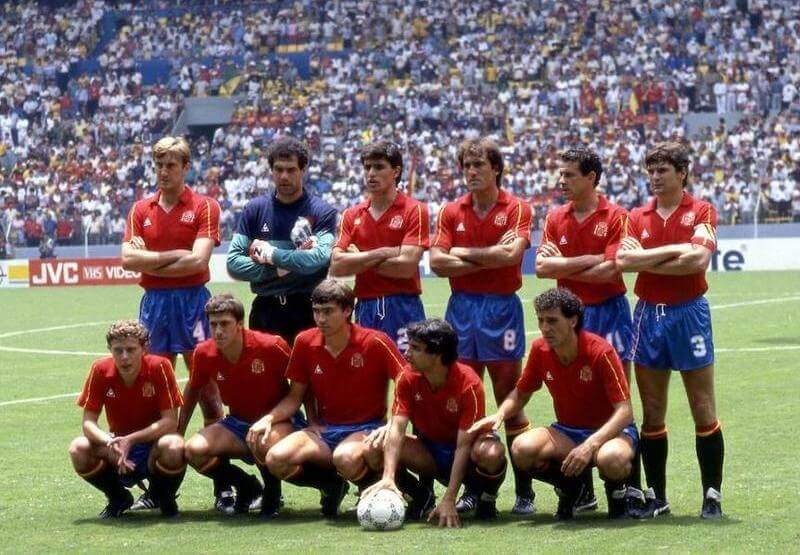 Spain 1980s football shirt
Spain 1980s football shirt
We also like the Spanish National team classic football Shirt in the 1990 World Cup. A World Cup in which the national team had high hopes and had Martin Vazquez in his footballing heyday but could not get past the round of 16. You will feel in your own skin the triumphs and history of the Spanish national football team.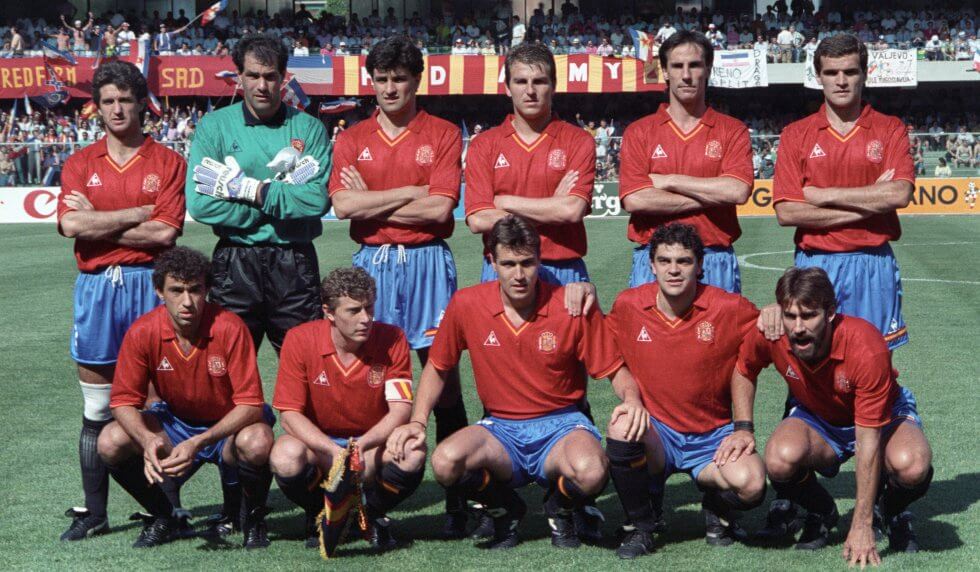 Spain 1990 football shirt
Spain 1990 football shirt
 Retrofootball
Retrofootball  Belgium
Belgium  France
France  Germany
Germany  Italy
Italy  Portugal
Portugal  Spain
Spain  Switzerland
Switzerland  United Kingdom
United Kingdom  other countries
other countries  Retrorugby
Retrorugby 
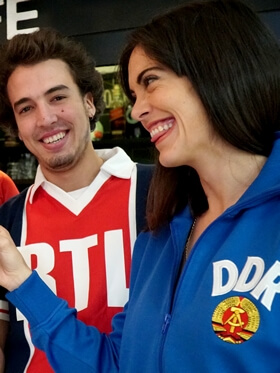
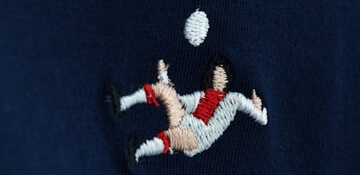




Post Comments